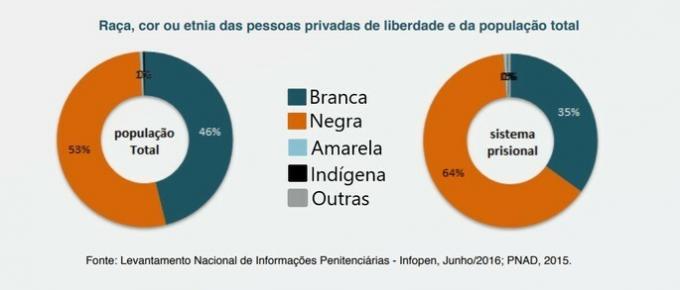In sociology, the family represents an aggregation of individuals united by affective or kinship ties in which adults are responsible for caring for the children.
The family is also understood as the first institution responsible for the socialization of individuals.
Throughout history, the concept has undergone some significant changes, but it remains common characteristics the formation of a nucleus (family) and its responsibility for the care of the younger individuals.
The concept of family takes on its complexity as it relates to nature, from the birth of new individuals of the human species, with culture, through the organization of social groups (relatives).

Studies show that, contrary to the idea that family formation is a determination of nature, the way individuals organize and give meaning to the family is, fundamentally, cultural. This organization can take on several historical and geographic variations.
Patriarchal Family and Society
To understand the concept of family, it is necessary to realize that ancient peoples gave a much lower value to individuality, individuals organized themselves into groups (family, clan, state, etc.).
This mentality remained, since then, until the end of the Middle Ages. Only since modernity has it become possible to think of an individual detached from their family group.
You social groups they were organized around a chief, whose power was legitimized by the group itself.
Due to the hostile environment, the activities carried out (extraction) and the need to preserve the species (human), physical strength was a legitimizing factor.
Thus, in general, these positions of command were being occupied by men and the father figure came to be identified as the head figure. Hence, the term derived from the Latin word pater (father), patriarch.
Thus, the concept of family was developed from the figure of its head. A criterion was established, patriarchal (relative to the head), patrimonial (property) and matrimonial (marriage).
Studies show that some societies took different paths and the figure of leadership was represented by female individuals.
This reinforces the idea that the formation of a patriarchal structure has no biological relationship of differentiation between men and women. It is understood as the continuity of the way in which the social division of labor took place.
Family and Power Transmission
With the historical construction of the West, in ancient Greece, land ownership and privileges conquered by certain families, began to be transmitted between family members, hereditary.
Children of Greek citizens, in their maturity, are also understood as citizens, as well as taking over their properties. Likewise, slaves inherited their social status.
This condition of heredity of social conditions is established as a basis for the transmission of power (inheritance) that lasts until today.
The Industrial Revolution and the Concept of Family
Since the Industrial Revolution, the extended family (individuals outside the family nucleus: uncles, cousins, grandparents, etc.) has been distanced and fragmented. Blood ties started to have a lower value and economic relationships started to govern family relationships.
The need to seek economic self-sufficiency makes individuals reduce the core family and thus reduce the burden of responsibility on active individuals economically.
The nuclear family appears, composed only of the father, mother and their sons and daughters. This model remains until today, undergoing some transformations over time.
There was a "sexual division of labor". In it, the woman was reinforced as being responsible for the care relationships with the children and with the home, while the man became responsible for maintaining the costs of the family.
The productive development of the 20th century led women to the so-called "double shift", the union of reproductive work (domestic work, unpaid) with productive work (income generator).
The concept of family in the Brazilian Constitution
Traditionally, the family has been an institution based on marriage. Governed by Federal Constitution of 1988 (art. 226), the family was considered only the cases in which the marriage was consolidated, within established parameters.

And, in this way, it left out, without legal protection, all other forms of alliance. After a series of debates, Brazilian law started to take as a foundation for the formation of a family, no longer marriage and procreation, but affection.
From then onwards, the laws that deal with marriage can be maintained, encompassing its role in a new concept of family: people united by emotional ties.
See too: Family: concept, evolution and types
Family in Anthropology
For some currents of the anthropology, the possibility of the human being being thought of as an individual is a mere abstraction (imagination).
For them, the human being must be thought of in its social complexity, with the family as the central institution of this socialization.
The family as an institution is directly related to other concepts that underlie society:
- the parentage, the descent relationship;
- fraternity, relationship with others on equal terms;
- conjugality, the association between two members of society;
- motherhood and fatherhood, the ability to leave descendants and transmit values and social constructions.
Within this mode, the family becomes the social institution which originates all others (State, religion, education, etc.). The way in which it is organized and the meaning attributed to it in Western societies is at the center of social determinations.
See too:contemporary family



